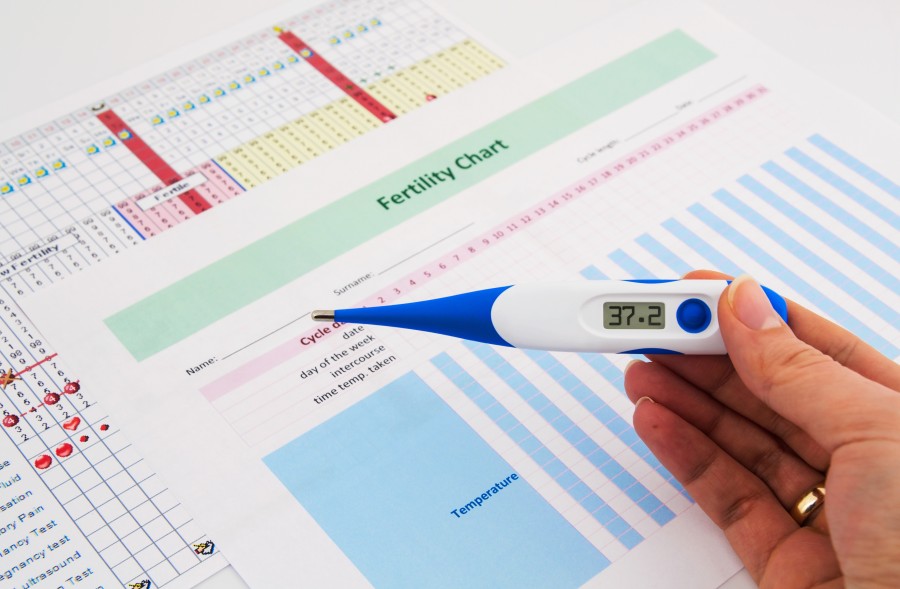Type 1 diabetes and fertility: can diabetes cause infertility?

Type 1 diabetes is associated with lower rates of fertility and can have an effect on conceiving [1, 2, 3, 4].
As recently as 30 years ago, women who had type 1 diabetes for more than 20 years were advised not to have children [2]. Since then, we’ve seen improvements in insulin therapy and the management of diabetes, as well as to fertility rates — but there is still an increased risk of infertility and problems during pregnancy if you have diabetes [5]. Insulin excess caused by more intensive insulin therapies has also recently been associated with an increased frequency of polycystic ovarian syndrome (PCOS) symptoms among women with type 1 diabetes, which can also affect fertility.
Below we take a closer look at diabetes and infertility, including possible causes, how to diagnose infertility and some of the treatments that may help.
Can diabetes affect male fertility?
There are a number of ways that diabetes can affect the ability of men to have children:
- Evidence shows that erectile dysfunction (the inability to achieve or maintain an erection) is more common in men with diabetes [2, 6].
- Diabetes has been shown to affect both the function of the testicles and the formation of sperm [3].
- Sperm cells may have reduced motility, which means that they will not be able to swim as well to fertilise an egg [3].
- It has also been shown that the DNA inside the sperm has a higher rate of damage in men with diabetes [3].
- The other important ingredients in semen may also not be produced properly if you have diabetes [3].
While this may feel like a long list, there are many things that can be helped. If you think you may have issues with male fertility, then speak to your doctor. If the cause of infertility can be identified, there is a better chance of being able to treat the problem [7].
Can diabetes affect fertility for women?
Diabetes is associated with lower rates of fertility for women [4, 5]. There are a number of reasons which may play a part in this [4]:
- High blood glucose, lack of normal insulin secretion and too-high insulin levels from injections can all lead to problems with ovarian function — how your ovaries work [4].
- In type 1 diabetes, the effects of low insulin and fat loss mean that the hormones made in your brain that control fertility are not produced at normal levels [5].
- Women who have diabetes are likely to experience menstrual problems such as irregular cycles, long cycles, or a complete lack of periods altogether (amenorrhoea), which are known to reduce fertility rates [2, 5, 7].
- High insulin levels given by injection, rather than produced by the pancreas, may lead to the development of polycystic ovarian syndrome (PCOS) [5].
Type 1 diabetes is associated with immune problems, such as autoimmune thyroid conditions, which are known to cause issues with fertility [4].
If you are struggling with conceiving and are worried about infertility, talk to your doctor. They will ask you a number of questions to help determine what the cause may be, and they may suggest running certain tests [7].
Causes of infertility that can affect both men and women

While some of the specific causes of fertility problems are unique to men or women, there are a number of common risk factors for infertility that can affect both [7].
The below factors can affect the chances of conceiving in both men and women [7]:
- Obesity
- Stress
- Smoking
- Some sexually transmitted infections (STIs)
- Recreational drugs (especially marijuana and cocaine)
- Exposure to toxic chemicals
- Certain medications (for example, chemotherapy)
As diabetes can lead to additional problems that may affect fertility (like the ones we’ve listed above), the chances of infertility are likely to be higher for couples in which one or more partner has diabetes [7].
Diagnosing infertility

You would usually need to be trying to get pregnant for a year without being able to conceive before you can be considered to have fertility issues [7]. In the UK, 1 in 7 couples will have difficulty conceiving in the first year [7].
If you are struggling to conceive, consider visiting the doctor together to discuss what you are going through. Infertility can affect either partner, so it is best to go as a couple [7].
There, your doctor will ask you some questions about you, your health and your diabetes [7].
Both you and your partner may have a number of tests [7]. For women, this may include blood tests, vaginal swabs and ultrasound scans [7]. For men, this may involve having a physical examination, a urine test and semen analysis [7].
Fertility treatments

The treatment you might be able to have for your fertility problems will depend on whether an underlying cause is discovered by the tests and investigations [7]. A number of common causes can be treated [7].
For women, if a condition called polycystic ovarian syndrome (PCOS) is found, it may be treated with medication such as an oral antidiabetic [7]. Problems caused by pelvic inflammatory disease (PID) or endometriosis may mean that you need to have surgery [7], which would need to be discussed with a specialist.
In men, there are different treatment options for erectile dysfunction and ejaculation disorders [7]. Your doctor or specialist can discuss these with you.
If no treatable cause is found, you may be able to have assisted conception, which means using medical methods to become pregnant [7]. This might include techniques such as in vitro fertilization (IVF) or intrauterine insemination (IUI) [7].
Prevention
There are a few things that you might be able to do to reduce the chances of fertility problems associated with diabetes [7].
Managing your blood glucose levels well can reduce these risks [7]. If you find that you are struggling to reach your target levels, then speak to your diabetes care team about adjustments you might be able to make.
Another change that could be beneficial is making sure that you maintain a healthy body weight [7].
Lastly, stress can cause problems with fertility, so any steps to reduce the mental or emotional pressure that you are under may help [7].
Diabetes can cause a number of problems with fertility [1]. For men, this can involve erectile dysfunction, as well as poor sperm quality (including problems with sperm movement and DNA) [3]. For women, diabetes can cause problems with the menstrual cycle and the ovaries [2, 5].
If you are having problems conceiving, it is important to speak to your diabetes team or doctor. Many of the issues that can lead to fertility problems can be treated, either through lifestyle changes, medication or surgery [7]. Your team will be able to make sure that your diabetes is well managed, investigate the possible causes behind your fertility problems and, if necessary, refer you to a specialist fertility service.
References
- Wiebe, J.C. et al. Fertility is reduced in women and in men with type 1 diabetes: results from the Type 1 Diabetes Genetics Consortium (T1DGC). Diabetologia. 2014; 57:2501–2504. https://doi.org/10.1007/s00125-014-3376-8
- Sjöberg, L. et al. Fertility in people with childhood-onset type 1 diabetes. Diabetologia. 2013; 56: 78–81. https://doi.org/10.1007/s00125-012-2731-x
- Ding GL et al. The effects of diabetes on male fertility and epigenetic regulation during spermatogenesis. Asian J Androl. 2015;17(6):948-53. doi: 10.4103/1008-682X.150844
- Yung-Hsiang L, et al. Type 1 diabetes impairs female fertility even before it is diagnosed. Diabetes Research and Clinical Practice. 2018; 143: 151-158
- Codner, P.M. et al. Female reproduction and type 1 diabetes: from mechanisms to clinical findings. Human Reproduction Update. 2012; 18(5): 568–585, https://doi.org/10.1093/humupd/dms024
- Maiorino MI, et al. Diabetes and sexual dysfunction: current perspectives. Diabetes Metab Syndr Obes. 2014;7:95-105. doi: 10.2147/DMSO.S36455
- Fertility and diabetes. Diabetes.org.uk. Accessed Oct 2022. Available at: https://www.diabetes.co.uk/pregnancy-complications/fertility-and-diabetes.html





